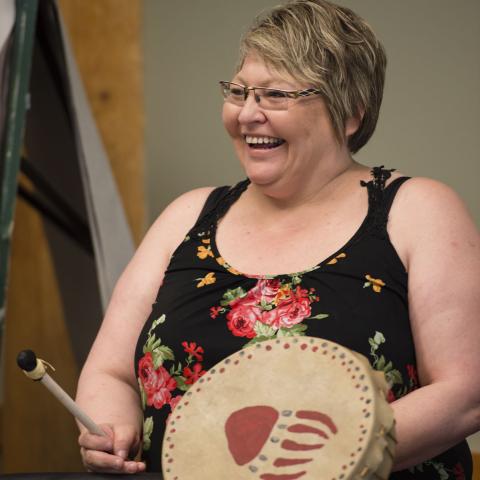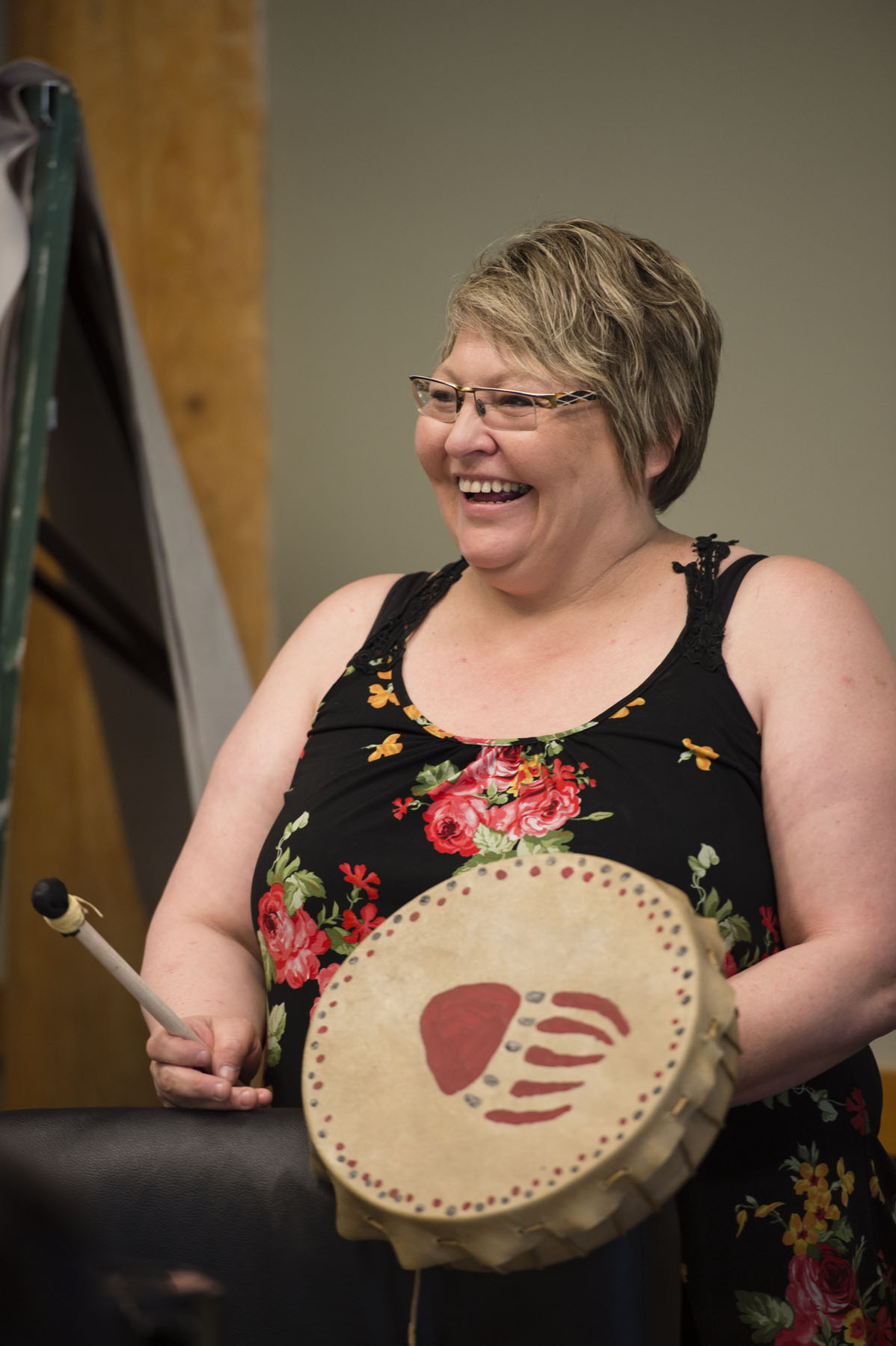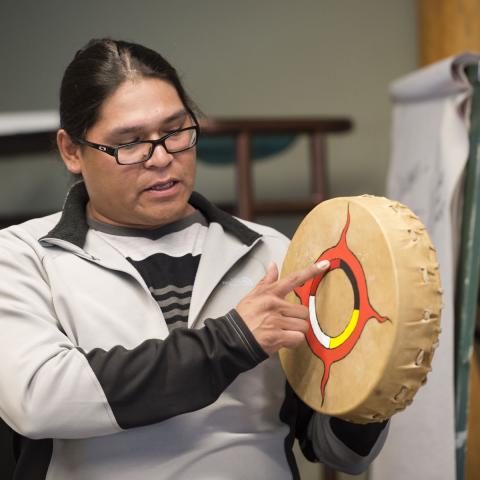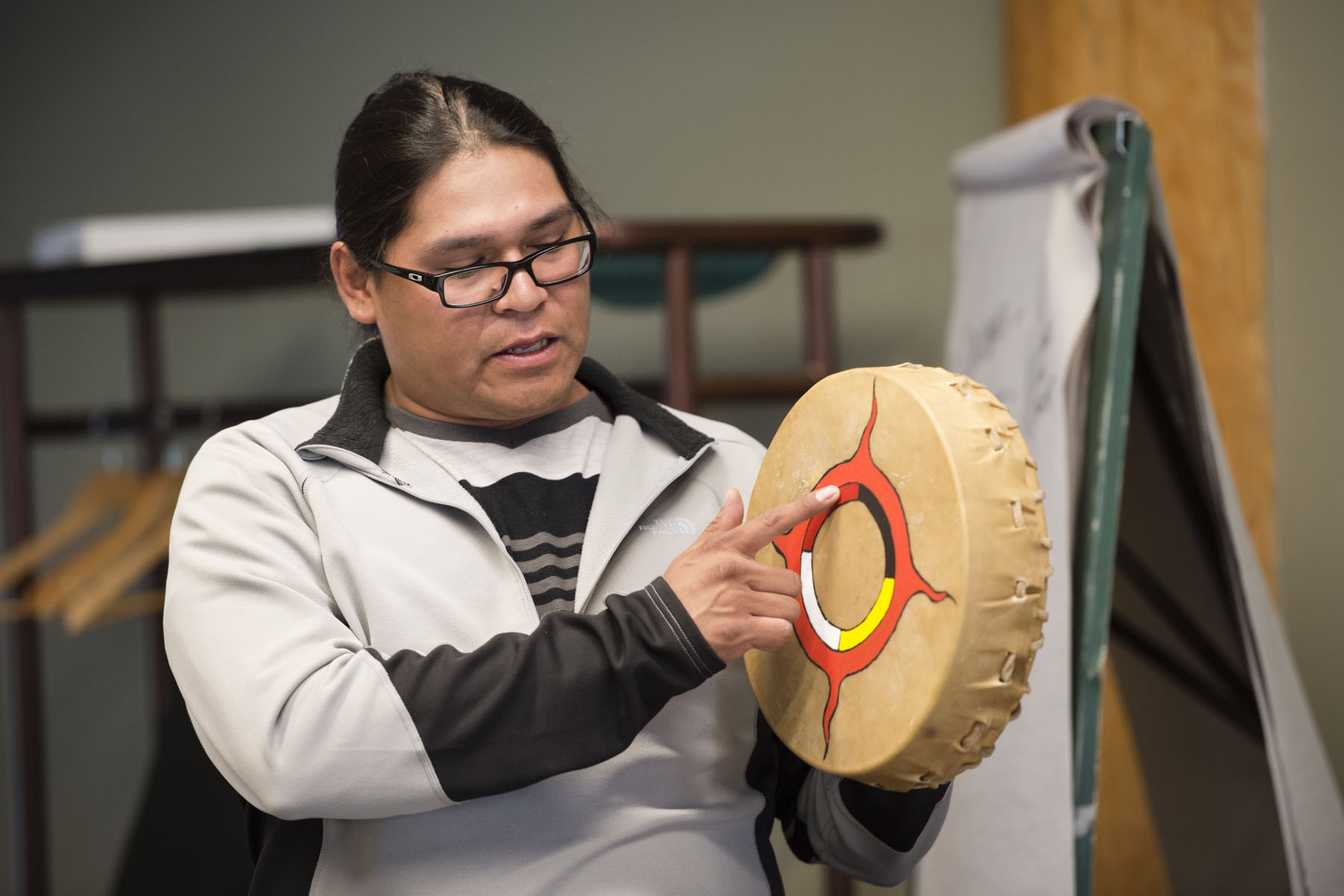Ochapowace Learn Together to Honour Late Chief's Dedication to Treaty Rights
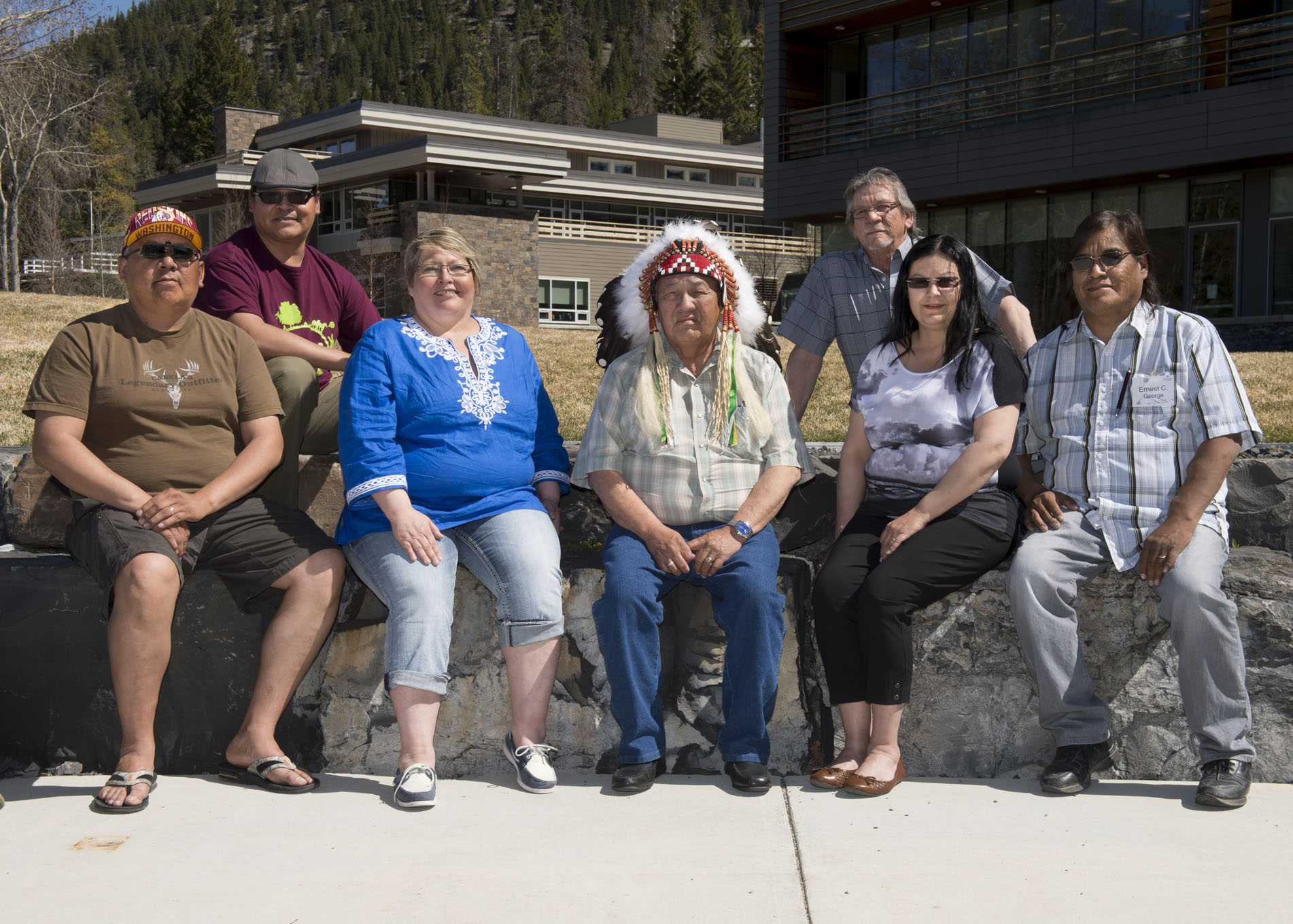
Ochapowace Nation (group photo from left to right): Ernest F. George, Albert George, Heather Bear, Chief Ross Allary, Elvis Henry, Geraldine Bear, Ernest C. George.
The youngest council member for Ochapowace Nation takes a moment at lunch to check his iPhone and return a few quick emails, then leans in to tell me he’s happy to be heading home to Saskatchewan tonight after several weeks on the road. It will be good to sleep in his own bed, he says, and he looks forward to seeing his girlfriend, his family, and the cat his mom has been looking after in his absence.
While he is clearly proud to join his fellow councillors and chief in today’s celebration at Banff Centre, I imagine Albert George is thinking about his father, the late Chief Denton George, who encouraged his path, and the paths of his brother Ernest F. George and his uncle Ernest C. George, to leadership and devotion to their community. In fact, I learn later, the late Chief is never far from the thoughts of all Ochapowace band council members here in the room with Albert, including Chief Ross Allary, Heather Bear, Geraldine Bear, and Elvis Henry.
A few minutes later during this celebratory lunch concluding the Indigenous Strategic Planning program, Albert turns his attention to the front of the room, fully engaged in celebrating the achievement of Chief Allary. The first of seven Ochapowace council members to accept the Certificate of Indigenous Leadership, Governance, and Management Excellence at Banff Centre, Chief Allary steps to the front wearing full ceremonial headdress. He accepts the congratulations of the room and says a few words of thanks to his fellow council members, his community back home, and the many Indigenous people he’s met in the six programs he has completed.
A day earlier, Chief Allary and councillors Geraldine Bear and Heather Bear took a break from a busy week in the program to talk about their commitment to taking the Certificate path together as a group – an endeavour they stressed would not be possible without the support of their home community back in southeastern Saskatchewan.
“Our goal was to arm our leaders with knowledge and training to tackle the challenges we face,” said Geraldine, speaking on behalf of the group. “Our belief is that we are only as good as our people – so investing in our leaders made good sense.”
Geraldine had read a story in the 2010 Buffalo Mountain Drum about the Siksika Nation council’s commitment to pursuing the Certificate path for the betterment of their community, and was inspired to encourage her own council to undertake a similar journey.
While the decision to embark together on the six-program course was future-focused and grounded in making the best decisions for all members of their community, the group ultimately made their decision based on a desire to honour the vision set out by the late Ochapowace Chief Denton George, whose 20 years in leadership had stood for fulfillment of treaty, and his Nation’s inherent right to self-governance.
Chief Denton George died at age 58 in 2009. “He was the one who had kept us united in our community,” said Geraldine Bear. “With his passing, we knew it was time to focus on our constitution and our laws, and reorganizing our nation.”
When Geraldine joined her fellow councillors in her first program in 2012, she found that Chief Denton George’s lessons and vision were more deeply ingrained than she had even thought possible.
“As younger councillors, we’d heard the words (about inherent right and self-governance), but never really knew how do we get there, what does that mean for us. Yet when faculty talked about it in the programs, we knew it, it was already there, it was ingrained in us ever since we were young people.”
The drive to create a sustainable, prosperous future for their community is evident in a broad portfolio of community and economic development activities on their 100,000-acre land base, and on property owned a few hours away near Regina, and in Saskatoon.
The Ochapowace Nation owns Lonesome Prairie Sand and Gravel, a Saskatoon-based company that does business in Canada’s western provinces, and that recently offered share ownership to employees. The Nation also operates Ochapowace Farms; an outfitting company called Ochapowace Whitetail Hunt; and Ochapowace Community Pasture, one of its first business endeavours, set up originally to fund community sporting programs. Plans for the future include redevelopment of Last Oak Ski Resort, which the Nation has owned since 1981, as well as pursuing partnerships and opportunities that arise from Saskatchewan’s potash mining operations. A new endeavor well underway is a 285-acre business park right on the TransCanada Highway seven kilometres from Regina.
Chief Ross, taking a short break with his fellow councillors, says his experience in the Negotiations Skills Training program a number of years earlier helped him in the purchase of the land near Regina through a Treaty Land Entitlement agreement. As both a leader and an Elder in his community, Ross impressed his fellow councillors with his dedication to lifelong learning. “Chief Ross is 69, he still speaks the Cree language fluently, and he has a wealth of knowledge,” Geraldine said. “For him to be willing to learn something new and take part in this, I just felt so proud – here he is, supporting us to learn, and learning with us.”
The learning experience in Banff will benefit not only the seven council members who have embarked on the Certificate path, she added, but will also flow through to support the committed members of Ochapowace Nation who provide their own skills and leadership for the community. “What’s taught in these programs is relevant to us. Just about every program we’ve been to, we can relate, and we can take some of it back to help us do a better job.”
